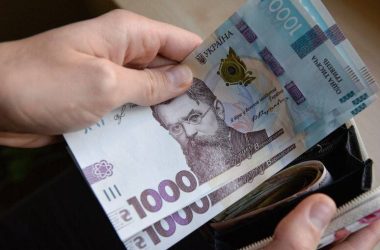Federal prosecutors alleged 11 people were spies living secret lives in American communities, from Seattle to Washington D.C., sent years ago to infiltrate U.S. society and glean its secrets.
In an extensive and bizarre affidavit whose details echoed Cold War spy thrillers, the Federal Bureau of Investigation claimed the alleged spies were sent here by the Russian overseas intelligence service known as the SVR—the successor to the Soviet KGB—as early as the mid-1990s, and were provided with training in language as well as the use of codes and ciphers.
Their mission, according to the FBI, was contained in an encrypted 2009 message from Russian handlers in Moscow to one of the defendants that read in part: "You were sent to USA for long-term service trip. Your education, bank accounts, car, house etc.—all these serve as one goal: fulfill your main mission, i.e. to search and develop ties in policy-making circles in U.S. and send Intels [intelligence reports] to" Moscow.
Many details of the alleged plot remained murky late Monday including the main impetus behind the intelligence program. The Russian embassy in Washington Monday said there wasn’t anyone available to comment.
The U.S. and Russia have sent spies to each other’s countries for decades, even in the 20 years since the Cold War ended. Still, the latest allegations come at a time when relations between the U.S. and Russia have been warming; last week, Russian President Dmitri Medvedev visited President Barack Obama in Washington.
It was unclear Monday if the case, unsealed late in the day, could hurt relations. A person close to the matter said there had been no communication between the U.S. and Russia over the case.
U.S. officials view the arrests as one of the biggest disruptions of a foreign intelligence operation in years. But in an age when data on the U.S. are readily available on search engines such as Google, the spy operation seems to have yielded little of value given some of the elaborate methods deployed.
Several of the alleged agents were paired as couples. They had children and lived the typical lives of American suburbanites in such low-key locations such as Rosslyn and Arlington, Va., and Yonkers, N.Y., according to the FBI affidavits. Some reported making contacts with government officials and with an unnamed financier who funded both major political parties.
They used coffee shops, bookstores and street corners to contact handlers, according to the FBI. In January, FBI agents watched as one of the defendants sat with her laptop in a coffee shop in Manhattan waiting for a Russian agent to drive by in a minivan. The agents were monitoring when the Russian agents in the shop and those in the minivan linked their paired computers to communicate.
The FBI alleged that the group communicated with Russian handlers using sophisticated techniques. Some operating in New York used encrypted computers linked via private computer networks to communicate only with specific computers with which they were paired, the FBI said. Others living in New Jersey and Boston used a technique called steganography, in which SVR handlers embedded messages into images on publicly available websites, the FBI said.
Others allegedly posted in Seattle and Boston used radiograms, or coded bursts of data sent by radio transmitters, to communicate, according to the FBI.
The FBI affidavit describes one hand-off of matching orange bags containing cash by "brush pass" while passing on the stairs of the entrance of a train station in the Forest Hills section of Queens, N.Y.
Officials said no secrets were compromised or revealed in the alleged plot, and the spy operation seems to have yielded little of value given some of the elaborate methods deployed. None of the 11 charged by U.S. prosecutors was accused of accessing any classified or sensitive U.S. government information.
Five of the suspects appeared in federal court in Manhattan late Monday, two married couples and a single woman. Robert Baum, a lawyer for one of them, Anna Chapman, argued to U.S. Magistrate Judge Ronald Ellis that the government had not proved that his client committed a crime in communicating with a Russian government official via computer and accepting a fake passport from an undercover FBI agent posing as a Russian agent.
Mr. Baum said his client, a 28-year-old divorced Russian national who has lived full-time in the U.S. since last year, took the passport to a New York City police precinct instead of passing it along to someone else as she was told to do, showing her innocence. "If we arrested and charged criminal acts against everyone who communicates with a government official by computer, we wouldn’t have room enough in the jails," he said.
But Assistant U.S. Attorney Michael Farbiarz said Ms. Chapman’s repeated interactions with the alleged Russian official, captured on video, and her dialogue with the undercover FBI agent showed she was a trained agent who took direction from Russia. She went to different locations at least 10 times on Wednesdays to connect with a Russian official by computer via a closed wireless network, he said.
FBI agents spent years monitoring the alleged agents, in some cases using undercover U.S. agents posing as Russian officials to meet some of them. They arrested 10 of the 11 in New York, Boston and northern Virginia in recent days—one is at large—in part because at least one of the group was preparing to permanently return to Russia, said a person familiar with the matter.
The case grew from a years-long FBI investigation focused on Russian espionage capabilities in the U.S since the breakup of the once-formidable spying operation of the former Soviet Union.
Among those arrested was Vicky Pelaez, a writer for the Spanish-language newspaper El Diario in New York. According to a professional biography for Ms. Pelaez, she is Peruvian-born. How she allegedly came to be involved with an alleged Russian spy ring was unclear.
The FBI affidavit said she traveled to an unnamed South American country to pick up cash for fellow agents in Yonkers sent by SVR handlers and to pass on messages. In one 2002 trip, Ms. Pelaez brought back $80,000 stuffed into her luggage—eight bags each containing $10,000,, according to the FBI. An attorney for Ms. Pelaez couldn’t be reached.
The FBI said that the apparent ringleader of the group, Christopher Metsos, an alleged Russian agent who lives overseas and who remains at large, buried a large amount of cash in upstate New York, which two years later other defendants living in Seattle flew to New York to dig up. In one September, 2009, meeting, videotaped by FBI agents, two of the alleged agents met in a park in the Fort Greene neighborhood, Brooklyn, N.Y., to hand of a $150,000 in cash inside a bag, and a flash memory card that had been provided by Russian official weeks earlier, according to the FBI affidavit.







